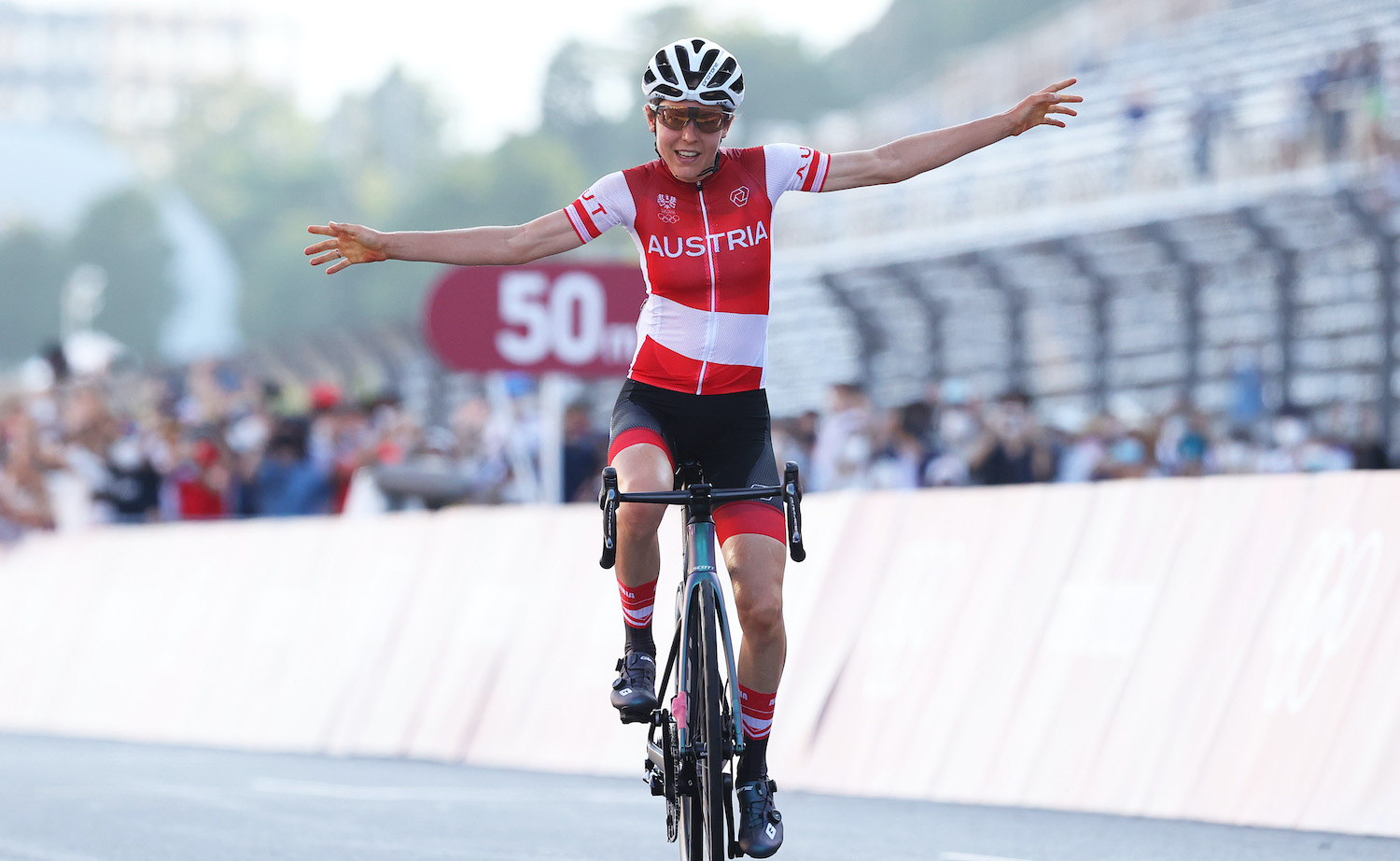Annemiek van Vleuten crossed the finish line Sunday at the Fuji International Speedway, arms aloft as she celebrated what she thought to be an Olympic gold medal in the women's road race. But van Vleuten and her team had no idea that Anna Kiesenhofer, an amateur cyclist and professional mathematician from Austria, had won the race 75 seconds earlier.
Kiesenhofer's win and van Vleuten's second-place finish were equally shocking outcomes for starkly different reasons. Kiesenhofer last raced professionally for Lotto Soudal for one year in 2017, after which she joined the prestigious Swiss university EPFL to work as a post-doctoral fellow and lecturer in the Chair of Partial Differential Equations. While van Vleuten was winning the 2019 World Championships and Liege-Bastogne-Liege, Kiesenhofer was working on papers such as "Small data global regularity for half-wave maps in n=4 dimensions" and "b$-Structures on Lie groups and Poisson reduction."
Unlike her road race competitors, Kiesenhofer had no coach, no teammates dedicated to training with her, and none of the support afforded to full-time pros. She was Austria's only rider in the race, and her medal was her country's first in cycling since 1896, when Adolf Schmal won gold in the 12-hour race. This is not to say that Kiesenhofer's upset win is a fluke, or that she's any less serious of a cyclist than the favorites. She's won three Austrian national time trial championships and one road race title since she left Lotto, and she's developed a complicated training plan for herself. "I’m not the kind of cyclist who is only pushing the pedals; I’m also the mastermind behind my performance," she said after her win. "I'm also proud of that."
Playing with the CORE body temp sensor as part of my prep for Tokyo. Many questions remaining re heat acclimation. Most striking for me is how much time I spend in the "heat training zone" (>38.5°) during normal rides in cool conditions. Is this really a heat stress for the body? pic.twitter.com/Ym16hgzio7
— Anna Kiesenhofer (@AnnaKiesenhofer) July 3, 2021
In Sunday's race Kiesenhofer leapt from the starting gun, joining a five-rider breakaway that worked together through the heat to build up an advantage of 11 minutes over a sluggish peloton. She attacked with 41 kilometers to go, on the slopes of the Kagosaka Pass, then made the attack stick with some strong solo riding. One big reason why Kiesenhofer wasn't caught by the Dutch team, or anyone else, was because none of the major teams in the peloton never quite put together a truly organized chase group.
Van Vleuten and her teammates were comfortably the strongest quartet in the race. Anna van der Breggen had won two World Championships since her gold in Rio, Demi Vollering took this year's La Course, and Marianne Vos is the most prolific winner in women's cycling history. Despite all that firepower, the Dutch team either held back or whittled the peloton down with flurries of attacks. Only the Germans worked together to bring back the breakaway, and after the race, many riders voiced their displeasure with the Dutch. “If I’m to be completely honest, then this was bullshit. It was a pretty bad portrayal of female cycling," Danish rider Cecilie Uttrup Ludwig told a Danish paper. "I'm sorry because it's just piss. In general, women's cycling is really good. And then we have an Olympics that goes so far out to all continents where we can really show how cool it is. And then we make such a mess."
The Dutch team also didn't chase down Kiesenhofer because they didn't even know she was up the road. While cyclists are allowed to race with radios during most other competitions, they are forbidden to do so during the Olympics. They can still receive vital information about time gaps, the distance remaining in the race, and the difficulty of upcoming climbs, but they have to be informed through team cars or race motorbikes. The peloton knew that there was a breakaway up ahead, though not everyone kept straight how many riders were part of it, and after they brought back the first four stragglers from the break, they thought their work was done. British rider Lizzie Deignan also thought van Vleuten had won the race, though bronze medalist Elisa Longo Borghini knew she'd finished third.
A gold for van Vleuten would have been a storybook outcome, as she was headed toward a win five years ago in Rio when she suffered a horrible crash. After the Tokyo race, she was critical of the stunted flow of information, which required her to yell over to a TV motorbike to find out what was going on. "But yeah, I’m proud of my first Olympic medal," she said in a post-race presser. "Or I hope to be proud after some more time."






